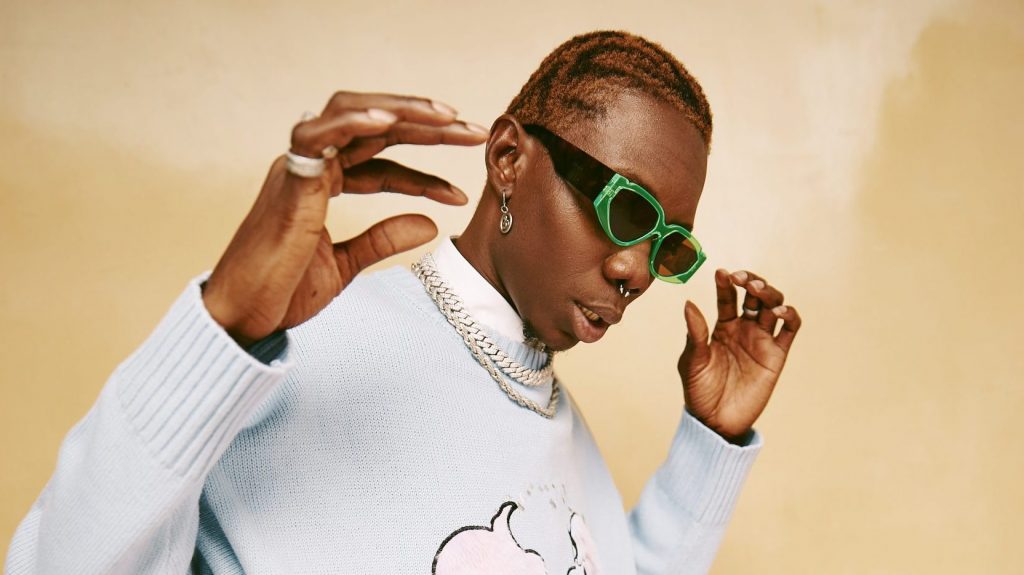By Michael Chiedoziem Chukwudera
Shortly before he released the album Sex over Love, Blaqbonez put out a tweet in which he declared the album to be “his truth.” When artists describe a piece of art as “their truth”, we know they are talking about an unconventional opinion that is likely to be controversial, but is borne out of personal experience, and cannot be invalidated by whatever large groups of people are unable to relate to it.

Art borne of unconventional “truths” like these are usually controversial, and the controversies that they stir have often been drivers of their commercial success. They have also stirred uncomfortable discussions, particularly about how certain demographics of people are marginalized in society on certain grounds.
For Emeka Akumefule, popularly known as Blaqbonez, the grounds of his marginalization would be that prior to becoming famous, he was not particularly attractive, at least not according to the parameters that define alpha-male attractiveness. Add that to the very difficult path of a struggling artiste in a terrain like Nigeria, and it wouldn’t be out of place to deduce that he would have to work twice as hard, or be overlooked and denied certain…privileges. A few of these “privileges” suggested by the subject matter of Sex over Love are money and women, but the latter, it could be argued, was the most pressing of the issues. This largely influences Blaqbonez’s decision to sing about women in a certain way across the record.

By naming the album Sex over Love, he brazenly holds out his preference for adventures of sexual conquest over emotional commitment. The album is rife with songs where Blaqbonez sings and raps about the pleasures of polyamory (“Okwaraji”), gratitude for the chance to get an orgasm (“TGF”), acknowledgment of the fact that women are only attracted to him for his success (“Bling”), and philophobia (“Never Been In Love”). Away from the studio, he is very vocal about these biases, often telling stories to portray why he holds them. It explains why he refers to these biases as his “truth”.
It goes without saying that Blaqbonez is a brilliant and very hardworking artiste, and that by a stroke of marketing genius, he has garnered a loyal fanbase, largely as a result of his own efforts. However, the body of work that is Sex over Love is an act of rebellion by the artist against the deprivations he has suffered and his way of rising above it, with subtle catharsis and giving a middle finger to the system which once tortured him on account of his looks, or lack thereof.
Every person who creates art comes to the table with a heart that is either bleeding with pain or beating in ecstasy, and the aim is to produce work that speaks loudly about where it hurts or excites. Art thrives on communication which is hinged on understanding— a premise that whatever one has gone through, there is another person somewhere who has gone through similar ordeals and can relate to it. To borrow from Kazuo Ishiguro, a piece of art largely involves an artist relaying an experience to another person, saying, “This is how I feel about this. Do you feel the same way?”

The story told in Sex over Love and the various insecurities which the LP echoes, is highly relatable to young people in a country where over 30% of its youth are unemployed and mostly deprived of money and/or romance. This body of work has gained wide acceptance among young men, many for whom it has become a life credo to renounce love, typifying a generation in which many have been broken by love, but still herald the natural urge for sexual gratifications.
At its best, Sex over Love is an anthem of motivation to rise above limitation, come to terms with personal flaws and accept the privileges that accompany fame. At its worst, it is a series of heartbreak-induced ruminations concealed in a foil of bravado, which Blaqbonez has curated so well under the umbrella of a cohesive body of work.
For a long stretch of the record, Blaqbonez seems to be addressing the women flocking around them in the lines of “when I had little, you were nowhere near me. Now that I have it, and you have come to me, you will only be with me on my own terms”. His guiding rhetoric prioritizes gratification, but views love with derision and bears the baggage of well-veiled insecurity carried over from years of struggle. The question is, will this prove to be a passing phase in his career, or has the philosophy come to stay? What views will he adopt in his eventual evolution? His future projects have a question to answer, and that is the question of whether Emeka Akumefule would grow beyond the insecurities of his difficult past, and explore art with an even deeper meaning.
Bio
Michael Chiedoziem Chukwudera is a writer and freelance journalist. His works have appeared in Jalada Africa, Praxis Magazine, African Writer, The Lagos Review and Fortunate Traveller, among others. He lives in Asaba, Nigeria.




